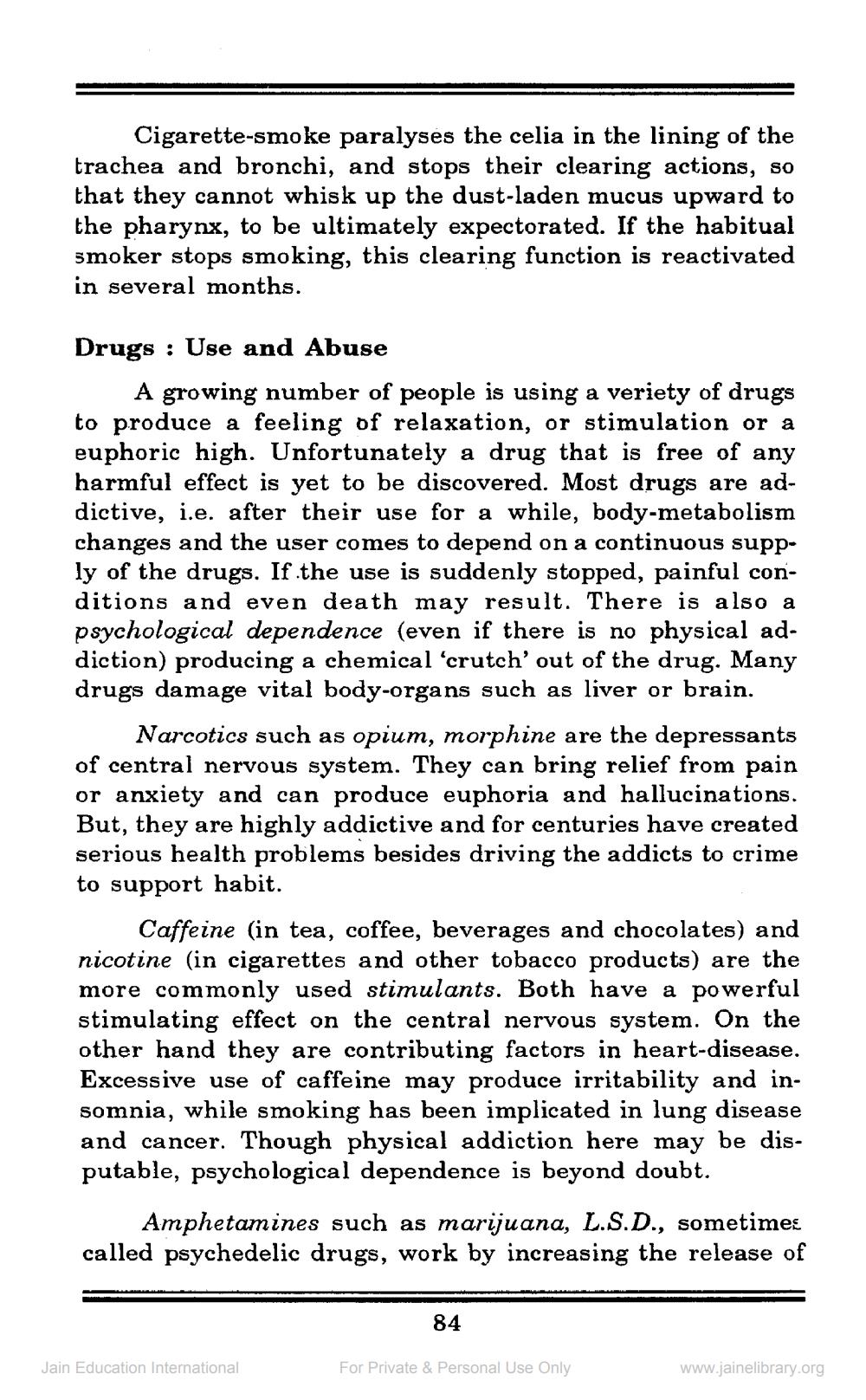________________
Cigarette-smoke paralyses the celia in the lining of the trachea and bronchi, and stops their clearing actions, so that they cannot whisk up the dust-laden mucus upward to the pharynx, to be ultimately expectorated. If the habitual smoker stops smoking, this clearing function is reactivated in several months.
Drugs : Use and Abuse
A growing number of people is using a veriety of drugs to produce a feeling of relaxation, or stimulation or a euphoric high. Unfortunately a drug that is free of any harmful effect is yet to be discovered. Most drugs are addictive, i.e. after their use for a while, body-metabolism changes and the user comes to depend on a continuous supply of the drugs. If the use is suddenly stopped, painful conditions and even death may result. There is also a psychological dependence (even if there is no physical addiction) producing a chemical 'crutch' out of the drug. Many drugs damage vital body-organs such as liver or brain.
Narcotics such as opium, morphine are the depressants of central nervous system. They can bring relief from pain or anxiety and can produce euphoria and hallucinations. But, they are highly addictive and for centuries have created serious health problems besides driving the addicts to crime to support habit.
Caffeine (in tea, coffee, beverages and chocolates) and nicotine (in cigarettes and other tobacco products) are the more commonly used stimulants. Both have a powerful stimulating effect on the central nervous system. On the other hand they are contributing factors in heart-disease. Excessive use of caffeine may produce irritability and insomnia, while smoking has been implicated in lung disease and cancer. Though physical addiction here may be disputable, psychological dependence is beyond doubt.
Amphetamines such as marijuana, L.S.D., sometimes called psychedelic drugs, work by increasing the release of
84
Jain Education International
For Private & Personal Use Only
www.jainelibrary.org




